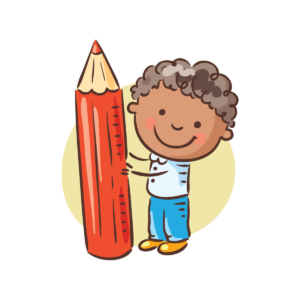An Interview with Dr. Nikole Hollins-Sims, Educational Consultant, Pennsylvania Training and Technical Assistance Network (PaTTAN) and Sarah Holland, Special Assistant for Family Engagement for the PA Department of Education and Department of Human Services
Why is Pennsylvania investing in family engagement strategies?
 “For two main reasons,” says Sarah Holland, special assistant for family engagement for the PA Department of Education and Department of Human Services:
“For two main reasons,” says Sarah Holland, special assistant for family engagement for the PA Department of Education and Department of Human Services:
1) Children learn and grow within the context of their families and communities. Children and families benefit when strong partnerships are built between them and the individuals and systems that support them in their learning and growth.
2) Families have unique perspectives and information regarding their child, their learning, their growth and their development. When families and their partners work together to identify strengths and opportunities for growth, it leads to positive outcomes.”
Can you please describe the state’s family engagement work and discuss Pennsylvania’s plans for the future?
“Through the Office of Child Development and Early Learning, Pennsylvania has had a long term commitment to family engagement. This includes: the development of a position within OCDEL to support our family engagement efforts, the development and revision of standards for our early learning programs related to Partnering with Families and Community (Program Partnership Standards) and the most recent work of the development of a Birth through College Career Community Ready Family Engagement Framework,” says Holland.
What are some of the greatest successes you’ve seen in the family engagement work? Can you please offer some examples?
 “The Coalition that was brought together to develop the most recent Framework was an incredible success. The input, feedback and commitment of the coalition shaped the Framework and its strength is a direct result of the collaboration and work of the coalition,” says Holland.
“The Coalition that was brought together to develop the most recent Framework was an incredible success. The input, feedback and commitment of the coalition shaped the Framework and its strength is a direct result of the collaboration and work of the coalition,” says Holland.
“In addition, the Pennsylvania Training and Technical Assistance Network’s (PaTTAN) Family Engagement initiative has provided schools across the commonwealth with resources on how to engage in family-school partnerships.,” adds Dr. Nikole Hollins-Sims, educational consultant, Pennsylvania Training and Technical Assistance Network (PaTTAN). “This has included online-modules for schools to learn how to increase and enhance their family engagement methods. Using the work of Joyce Epstein and the National Network of Partnership Schools, as well as the National PTA standards, the modules are specific to addressing family advocacy, welcoming school environments, and ensuring student success.”
Why is family engagement of particular interest for you?
“As a parent myself, I have experienced the impact of strong partnerships. I truly believe that families hold unique and most valuable knowledge about their children. This knowledge and wisdom combined with the skills and knowledge that early childhood professionals bring to a partnership can have a powerful, positive trajectory on a child’s outcomes,” says Holland.
Tell us a little about your background?
“For the past twenty-plus years, I have been honored to hold a variety of professional roles that have allowed me to support families in their parenting journeys, as well as to support family voice within policy development, says Holland.
“I am a certified school psychologist by training, and in that work, the collaboration with families was imperative to ensuring that students receive the best support possible to be successful in school. Additionally, I’ve conducted doctoral research around motivations for caregivers of children of incarcerated parents to engage in a family-school partnership. This research was enlightening in showcasing the importance of child invitations for families to connect with schools. In my role as an educational consultant at PaTTAN, I’ve been a member of the family engagement initiative and multi-tiered system of support (MTSS) initiative and have worked directly with schools in how to embed their family engagement strategies into their educational system delivery,” says Dr. Hollins-Sims.
How can we ensure equity with family engagement work?
“We need to ensure that continuous self reflection, as well as continuous feedback and input occurs from the variety of families that live in Pennsylvania. Pennsylvania needs to continue to seek out input and knowledge from those in the field to ensure continued reflection and improvement,” says Holland.
“That may also include the use of ‘cultural brokers’ and community representatives, who can help bridge any barriers in understanding families and support advocacy efforts,” says Dr. Hollins-Sims.
 What can others learn from what has happened in Pennsylvania?
What can others learn from what has happened in Pennsylvania?
“That family engagement work is not one size fits all and that at the foundation of family engagement is the building of relationships. At the foundation of building relationships is the building of trust. There are no shortcuts to this work. Without attending to and attention to relationships, our efforts will not have a high impact,” says Holland.
Key Takeaways:
- Building trust is the foundation of all relationships. Relationships are the key to strong, sustainable family engagement.
- Families unique perspective about their children strengthens a child’s growth when coupled with the work of education partners. Partnerships are critical.
Pennsylvania Training and Technical Assistance Network (PaTTAN)
Working with the Bureau of Special Education (BSE), Pennsylvania Department of Education (PDE), PaTTAN provides a full array of professional development and technical assistance targeted to improving student results. This professional development and technical assistance takes many forms in order to meet the varied needs of PaTTAN’s constituents. Week-long summer institutes, ongoing professional development series, webinars, on-site assistance, and individual student or teacher supports are some of the means by which PaTTAN provides support to schools.
PaTTANs Family Engagement page
Family Engagement for the PA Department of Education and Department of Human Services

